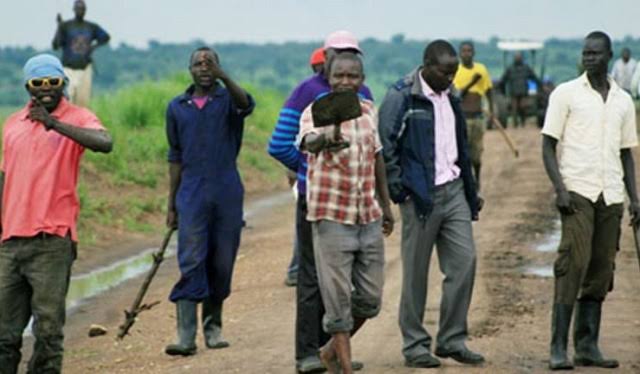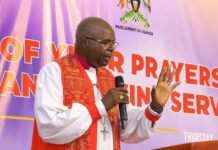Uganda Bureau of Statistics (UBOS) has finally released the final report containing the ultimate findings from the 2024 National Population & Housing Census exercise that was conducted last May,2024.
This was the 6th time such exercise, ordinarily done every 10 years, was being conducted since Uganda attained independence in 1962.
THE LAND CRISIS:
Because without it, activities relating to agricultural, housing construction and industrial work can’t be conducted, land is a fundamental resource for the economic development of Uganda.
Without land securely being available, means that the wealth creation messages of President Museveni can never be implemented successfully.
Even under the UN agenda for Sustainable Development Goals (specifically Goal number 1) references land and requires that people in any country don’t only own land but also possess legally recognizable documentation evidencing their ownership of the same. That’s how important land is regarding human development, economic transformation and environmental sustainability.
On page 162 of the 2024 final census report of 352 pages, UBOS establishes that of the roughly 46m people we currently have in Uganda, only 7,392,769 (roughly 17%) have any form of land ownership.
During the enumeration exercise each of the enumerated adult was asked land ownership-related questions and it regrettably turned out that as many as more than 38m aren’t possessed with any form of land ownership.
This is sad and humbling but the good news is that this latest finding by UBOS will place people in government, policy makers and other makers of fundamental decisions in an enabling position to design appropriate interventions to mitigate that anomalous situation-going forward.
The respondents were asked to confirm whether they own any land-be it for agricultural or non-agricultural purposes. And more than 38m revealed they didn’t own any land for whatever purpose either individually or jointly with someone else.
The situation is more disturbing among younger Ugandans than among more aged ones. It was notoriously established that among those aged 17 years and below, only 4% own land yet its at 51% among those aged 60 years and more. Among those aged 18 years and more, 6.6m own land and a whopping 15.6m don’t own any.
When it comes to gender disaggregation, the UBOS report shows that land ownership among adult males stood at 37% and 24% among females. Of the roughly 7.4m Ugandans owning land, only 58% have relevant documentation authenticating their ownership of the same.
The implication of all this is that a whopping 42% merely own land without any accompanying documentation. In simple terms, documentation would signify people having titles for the land they claim to be theirs under the different land tenure systems namely customary, freehold, leasehold or even mailo. These are the four land tenure systems the Ugandan Constitution recognises.
This more than 40% proportion of the land-owning population, that is vulnerable due to absence of registered land rights, is what President Museveni is always having in mind when he insists on the need to have Bibanja owners (who merely have handwritten agreements) enrolled on a register, individually registered and issued with land titles.
It’s easier to enforce one’s land-related rights once registration is relied upon to prove and evidence that conclusive ownership that comes with it.
The geographical jurisdiction of Kampala Capital City Authority (KCCA which is basically Kampala district) has the highest number of registered land owners (mostly freehold) and 81% of land owners have registered ownership in the KCCA territory. Registration is lowest in Lango sub region at just 29%!
Other regions or sub regions of Uganda fair as follows when it comes to registered land ownership: Bunyoro 56%, Buganda 77%, Ankole 66%, Kigezi 71%, Rwenzori 66%, Toro 64%, Busoga 69%, Bukedi (Tororo etc) 65%, Bugisu 70%, Sebei 52%, Teso 46%, Lango 29%, Karamoja 43%, Acholi 44%, Madi 33% and West Nile 30%.
In his preface to the report, UBOS Chairman Dr. Albert Byamugisha implores stakeholders like policy makers, planners, researchers, private sector, the CSOs and development partners not to merely resent such intriguing census findings but to closely work with government towards mitigation while advocating for the enactment of appropriate interventions.
It’s Byamugisha’s view, as corroborated by UBOS Executive Director Dr. Chris Mukiza in the foreword to the report, that the final census report contains high quality statistical information, which state and non-state actors should use to engage in evidence-based decision-making in order to foster sustainable and inclusive development for the country.















